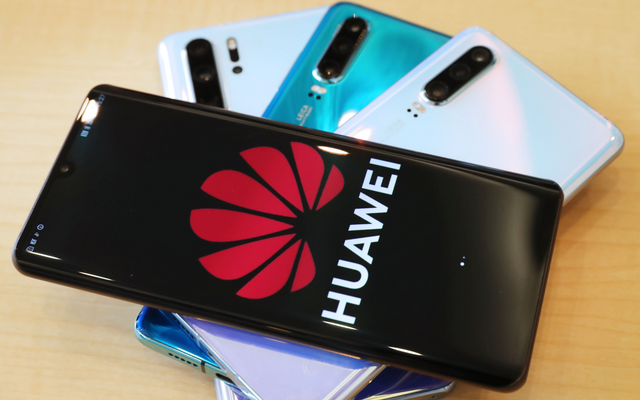Huawei Technologies held the "A Better World for NetX 2025 & X-Tech" summit, during which it reviewed planning proposals for future target networks.
This approach aims to take advantage of new opportunities and address the challenges related to the development of 5G networks and the digitization of the industry, in addition to supporting operators to offer differentiated competitive advantages and achieve success for their businesses.

Bing Sung, Head of Sales and Marketing Solutions at Huawei Carrier Business Group - delivered a keynote speech titled “NetX 2025: Building Future-oriented Competitive Networks.”
An array of experts and dignitaries attended the summit, many of whom delivered keynote speeches, including Tina Hooker, Head of Design at Elisa Access Design in Elisa, Joachim Horn, Head and IT Sector Advisor at Smart and PLDT, and Wu Xiangdong, Vice President Head of the China Telecom Research Center, and Bruno Taiton, IDC's Senior Research Director.
Along with the fast, intelligent world we live in, many industries have begun their journey to digitize their operations. Bing Sung, Head of Sales and Solutions Marketing at Huawei Carrier Business Group, said that he believes that operator networks are the basis of the digital economy, and there will be four major changes in this sector: First, operators will be able to notice new differences in the segments and needs of their customers. Thus, they will be able to adapt their products to serve more industry customers, in addition to consumers. Second, the operators will provide new and different services, as well as telecommunications and data transmission services, enabling them to provide many industry-specific solutions. Third, they will be able to effect a change in the services provided by the operator's network, as they will be bound by agreements to provide a high level of service (in terms of response time, speed, reliability, etc.) in order to meet the requirements of all industries. Fourth and last, all business scenarios that operators deal with must be full of uncertainty and possibilities in order to meet the unique needs of different industries.
In the context of facing these changes, Bing commented on how operators ensure a sustainable business growth environment, saying: “The sustainable profitability of the operators is determined by their ability to provide distinctive network services, diversified customer services, in addition to integrated services to the industry. All these factors determine the ability of operators to set preferential prices during future commercial operations.
He added: “The disparate network services process is not limited only to the different network capabilities of the operators, but rather relates to distinguishing and differentiating the network in all stages of processing operations, including more accurate network planning, faster and easier network activation, operation and maintenance, and improving network efficiency. ”
Bing highlighted the importance of Huawei exploring ways to help operators develop and fully exploit their disparate competitive advantages. He pointed out that with raising the efficiency of the network's capabilities during the practical stages, developing the capabilities of the operators in terms of speed of access, operation, maintenance and marketing, will provide them with many opportunities to seize them, and easily achieve a complete work cycle efficiently.
He also stressed that this development will benefit the operators, making them more competitive, and ensuring that they get a greater share in the market.
Bing also mentioned the need to change the way operators plan networks, as future networks will be planned based on the target networks. He also explained that the planning model for B2C services must be transformed from a cost-driven process to a desirable and distinctive experience. As for the B2B "business exchange services" sector, Bing emphasized the importance of looking at how to address unnecessary needs. Noting that the planning based on the target networks should focus on providing the best industry application experience.
Bing also emphasized the four key features of future target networks:
First, superconnectivity: providing a centralized, ubiquitous, high-speed, and established communications experience based on a customer outreach scenario.
Second, convergence and simplification: implementing simple protocols, and supporting the development of all services with simplified networks.
Third, adaptive flexibility: Including flexibility in terms of services, deployment, and management.
Fourth and finally, Collaborate Smart: Applying Artificial Intelligence to Network Autonomy to enable Autonomous Driving Network
Join the greatest community project hope from Here by @crypto.piotr
[WhereIn Android] (http://www.wherein.io)
Your opinion on this matters to you guys
@lastminuteman
@xeldal
@jondoe
@steemcurator01
@steemitblog
@steem-supporter
@bobbylee
@greentree
@lugina
@successgr
@ctime
@arunava
@bitcoingodperson
@sonki999
@peterchung
@votebetting
@bitcoingodperson
@minamiyololife
@parkname
@peterchung
@treyball
@benedict08
@gotogether
@upvu
@jondoe
@rtytf
@veronicalee
@exyle
@ctime
@gonen
@tribesteemup
@happyworkingmom
@gunthertopp
@shitcoiner
@nainaztengra
@wherein
thats very good
Downvoting a post can decrease pending rewards and make it less visible. Common reasons:
Submit